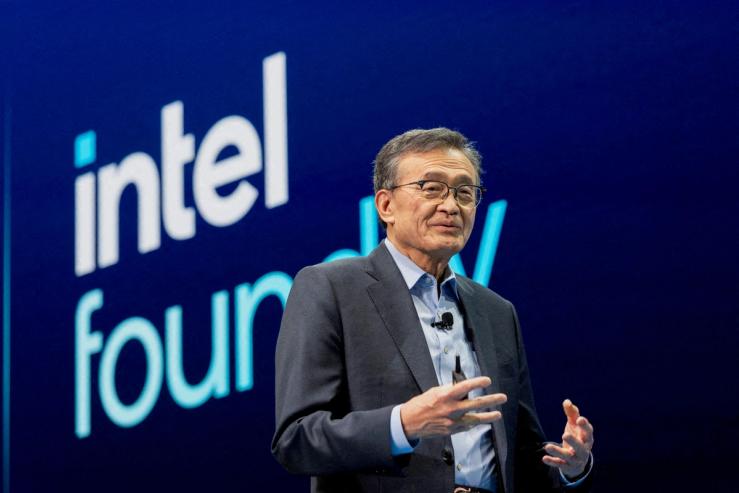the issue
President Donald Trump’s announcement that the US would take a 10% stake in Intel in exchange for federal funding earned him criticism from members of his own party. One Republican senator even called it “a step towards socialism.”
The move carries the hallmarks of a policy idea previously championed by progressives like Sen. Bernie Sanders, I-Vt. Sanders years ago made the case for the US receiving equity stakes in semiconductor companies that benefited from the law known as the CHIPS and Science Act.
The 10% stake in Intel will be funded by billions of dollars in grants awarded to the company as part of that law and a related program that funds the domestic production of advanced chips for national security applications, according to the company.
White House economic adviser Kevin Hassett has referred to the stake as a “down payment on a sovereign wealth fund.” And Trump has also suggested he won’t stop with Intel, while some administration officials have suggested defense companies like Lockheed Martin could also be investment targets.
In this article:
the bond
Sanders signaled support for Trump’s move. “If microchip companies make a profit from the generous grants they receive from the federal government, the taxpayers of America have a right to a reasonable return on that investment,” he said in a statement to news outlets.
Other progressives said they agreed with the policy in theory but questioned how it would be implemented and what the Trump administration will ultimately do with the profits.
Rep. Ro Khanna, D-Calif., said on NBC that he has “no problem” with the US taking a stake in Intel, but that the chipmaker needs much more than grants from the chips law to address its financial problems. Khanna encouraged the administration to use its influence to push the company to sign a labor neutrality agreement and “actually help workers.”
And Faiz Shakir, Sanders’ former campaign manager, told Semafor that he doubts the Trump administration plans to use the money to actually help US workers.
Shakir suggested that money from such an equity stake be used to ease the burden on US taxpayers in specific ways, like paying down student debt or providing higher wages.
“The virtues of it are ones that I think are sound,” he said. “The point, though, is if you’re going to get revenue out of these companies, where is that money going?”
The White House didn’t respond to questions about what the money would be used for or about other companies the government may be interested in taking stakes in.
The View From critics
Sen. Chris Coons, D-Del., told Semafor he is “uncomfortable” with the US government taking a major stake in Intel, likening it to state control of companies in other countries (like China) that the US historically has frowned upon.
“I understand there’s a gut reaction by many Americans: ‘If we’re giving big grants to companies, shouldn’t we get some upsides?’” Coons said in an interview.
“I could understand getting warrants for stock at a certain price point,” he added, “but actual equity, actual control makes me uncomfortable because it moves us more in the direction of nationalizing businesses, something that we’ve opposed when other countries have done it.”
Sen. Todd Young, R-Ind., one of the architects of the 2022 chips law, said late last month that the legislation was not intended to allow the government to take a stake in Intel or other companies that receive grants made available under it.
“There are clear concerns about precedent here,” he told reporters, though he added that he was “glad that the administration is focused on Intel’s success.”
Notable
- Sen. Elizabeth Warren, D-Mass., argues in a new letter that Trump’s deal with Intel fails US taxpayers because it has “no meaningful strings attached.”
- A US sovereign wealth fund that starts with the Intel equity stake is a great idea, Bloomberg columnist Nir Kaissar writes.
Burgess Everett contributed reporting.


